- Home
- Roger Zelazny
The Last Defender Of Camelot Page 2
The Last Defender Of Camelot Read online
Page 2
The stranger did not dismount. He faced the doorway, holding a foreign instrument in one hand.
"Who are you, that comes at this hour?"
"I come at any hour—I want directions, I seek my companions."
The mayor eyed the beast he rode, whiter than his beard, whiter than snow, than a feather ...
"What manner of animal is that?"
"He is a horse, he is the wind, he is the steady pounding of surf that wears away rocks. Where are my companions?"
"What is that tool you carry?"
"It is a sword. It eats flesh and drinks blood. It frees souls and cleaves bodies. Where are my companions?"
"That metal suit you wear, that mask . .. ?"
"Armor and concealment, steel and anonymity—protection! Where are my companions?"
"Who are they that you seek, and where are you from?"
"I have ridden an inconceivable distance, past nebulae that are waterspouts in rivers of stars. I seek the others, like myself, who come this way. We have an appointment."
"I have never seen another like yourself, but there are many villages in the world. Another lies over those hills," he gestured in the direction of a distant range, "but it is two days travel."
"Thank you, man, I will be there shortly."
The horse reared and made a sound terrible to hear. A wave of heat, greater than the lamp's, enveloped the mayor, and a burst of wind raced by, bowing the golden blades of grass which had not already been trampled.
In the distance, thunder pealed on the slopes of the hills.
The horseman was gone, but his last words hung upon the wind:
"Look to the skies tonight!"
The next village was already lighted, like a cluster of awakened fireflies, when the hooves and steel grew silent before the door of its largest dwelling.
Heads appeared behind windows, and curious eyes appraised the giant astride his white beast.
This mayor, thin as the gatepost he leaned upon, blew his nose and held his lantern high.
"Who are you?"
"I have already already wasted too much time with questions! Have others such as myself passed this way?"
"Yes. They said they would wait atop the highest hill, overlooking that plain." He pointed down a gentle slope which ran through miles of fields? stopping abruptly at the base of a black massif. It rose like a handless arm, turned to stone, gesturing anywhere.
"There were two," he said. "One bore strange tools, as you do. The other," he shuddered, "said, 'Look to the skies, and sharpen your scythes. There will be signs, wonders, a call—and tonight the sky will fall.' "
The horseman had already become an after-image, haloed in the sparks thrown from struck cobblestones.
He drew rein atop the highest hill overlooking the plain, and turned to the rider of the black horse.
"Where is he?" he asked.
"He has not yet arrived."
He regarded the skies and a star fell.
"He will be late."
"Never."
The falling star did not burn out. It grew to the size of a dinner plate, a house, and bung in the air, exhaling souls of suns. It dropped toward the plain.
A lightning-run of green crossed the moonless heavens,and the rider of the pale green horse, whose hooves make no sound, drew up beside them.
"You are on time."
"Always," he laughed, and it was the sound of a scythe mowing wheat.
The ship from Earth settled upon the plain, and the wondering villagers watched.
Who or what did it bear? Why should they sharpen their scythes?
The four horsemen waited upon the billtop.
THE STAINLESS STEEL LEECH
There came a point when I was turning out lots of short stories, so many that Cele suggested running two per issue to use up my backlog, with a pen name on the second tale. She suggested Harrison Denmark as the nom de typewriter. I agreed and this, my first effort at something slightly humorous, appeared under that byline. It never occurred to me that Harry Harrison, living at the time in Snekkerson, Denmark and author of The Stainless Steel Rat might somehow be assumed to be the author. It occurred to Harry, however, and he published a letter disclaiming authorship. • I was not certain he was convinced when I later told him that it had never occurred to me. But it had never occurred to me.
They're really afraid of this place.
During the day they'll clank around the headstones, if they're ordered to, but even Central can't make them search at night, despite the ultras and the infras—and they'll never enter a mausoleum.
Which makes things nice for me.
They're superstitious; it's a part of the circuitry. They were designed to serve man, and during his brief time on earth, awe and devotion, as well as dread, were automatic things. Even the last man, dead Kennington, commanded every robot in existence while he lived. His person was a thing of veneration, and all his orders were obeyed.
And a man is a man, alive or dead—which is why thegraveyards are a combination of hell, heaven, and strange feedback, and will remain apart from the cities so long as the earth endures.
But even as I mock them they are looking behind the stones and peering into the gullies. They are searching for—and afraid they might find—me.
I, the unjunked, am legend. Once out of a million assemblies a defective such as I might appear and go undetected, until too late.
At will, I could cut the circuit that connected me with Central Control, and be a free 'bot, and master of my own movements. I liked to visit the cemeteries, because they were quiet and different from the maddening stampstamp of the presses and the clanking of the crowds; I liked to look at the green and red and yellow and blue things that grew about the graves. And I did not fear these places, for that circuit, too, was defective. So when I was discovered they removed my vite-box and threw me on the junk heap, But the next day I was gone, and their fear was great.
I no longer possess a self-contained power unit, but the freak coils within my chest act as storage batteries. They require frequent recharging, however, and there is only one way to do that.
The werebot is the most frightful legend whispered among the gleaming steel towers, when the night wind sighs with its burden of fears out of the past, from days when non-metal beings walked the earth. The half-lifes, the preyers upon order, still cry darkness within the vitebox of every 'bot.
I, the discontent, the unjunked, live here in Rosewood Park, among the dogwood and myrtle, the headstones and broken angels, with Fritz—another legend—in our deep and peaceful mausoleum.
Fritz is a vampire, which is a terrible and tragic thing. He is so undernourished that he can no longer move about, but he cannot die either, so he lies in his casket and dreams of times gone by. One day, he will ask me to carry him outside into the sunlight, and I will watch him shrivel and dim into peace and nothingness and dust. I hope he does not ask me soon.
We talk. At night, when the moon is full and he feels strong enough, he tells me of his better days, in placescalled Austria and Hungary, where he, too, was feared and hunted.
"... But only a stainless steel leech can get blood out of a stone—or a robot," he said last night. "It is a proud and lonely thing to be a stainless steel leech—you are possibly the only one of your kind in existence. Live up to your reputation! Hound theml Drain theml Leave your mark on a thousand steel throatsl"
And he was right. He is always right. And he knows more about these things than I.
"Kenningtoni" his thin, bloodless lips smiled. "Oh, what a duel we fought! He was the last man on earth, and I the last vampire. For ten years I tried to drain him. I got at him twice, but he was from the Old Country and knew what precautions to take. Once he learned of my existence, he issued a wooden stake to every robot—but I had forty-two graves in those days and they never found me. They did come close, though....
"But at night, ah, at night!" he chuckled. "Then things were reversed! I was the hunter and he the preyl
"I remember his frantic questing after the last few sprays of garlic and wolfsbane on earth, the crucifix assembly lines he kept in operation around the clock— irreligious soul that he was! I was genuinely sorry when he died, in peace. Not so much because I hadn't gotten to drain him properly, but because he was a worthy opponent and a suitable antagonist. What a game we played!"
His husky voice weakened.
"He sleeps a scant three hundred paces from here, bleaching and dry. His is the great marble tomb by the gate... . Please gather roses tomorrow and place them upon it."
I agreed that I would, for there is a closer kinship between the two of us than between myself and any 'hot, despite the dictates of resemblance. And I must keep my word, before this day passes into evening and although there are searchers above, for such is the law of my nature.
"Damn them! (He taught me that word.) Damn them!" I say. "I'm coming up! Beware, gentle *bots! I shall walk among you and you shall not know me. I shall Join in the search, and you will think I am one of you. Ishall gather the red flowers for dead Kennington, rubbing shoulders with you, and Fritz will smile at the joke."
I climb the cracked and hollow steps, the east already Spilling twilight, and the sun half-Udded in the west I emerge.
The roses live on the wall across the road. From great twisting tubes of vine, with heads brighter than any rust, they bum like danger lights on a control panel, but moistly.
One, two, three roses for Kennington. Four, five...
**What are you doing, 'hot?" "Gathering roses."
**You are supposed to be searching for the werebot Has something damaged you?"
**No, I'm all right," I say, and I fix him where he stands, by bumping against bis shoulder. The circuit completed, I drain his vile-box until I am filled.
'Tfou are the wereboti" he intones weakly.
He falls with a crash.
... Six, seven, eight roses for Kennington, dead Kennington, dead as the *bot at my feet—more dead— for he once lived a full, organic life, nearer to Fritz's or my own than to theirs.
"What happened here, •hot?" '
"He is stopped, and I am picking roses," I tell them.
There are four *bots and an Over.
"It is time you left this place," I say. "Shortly it will be night and the werebot will walk. Leave, or he will end you."
"You stopped himi" says the Over. "You are the wereboti"
I bunch all the flowers against my chest with one arm and turn to face them. The Over, a large special-order *bot, moves toward me. Others are approaching from all directions. He had sent out a call.
"You are a strange and terrible thing," he is saying, and you must be junked, for the sake of the community."
He seizes me and I drop Kennington's flowers.
I cannot drain him. My coils are already loaded near their capacity, and he is specially insulated.
There are dozens around me now, fearing and hating. They will junk me and I will lie beside Kennington.
**Rust in peace," they will say. ... I am sony that I cannot keep my promise to Fritz."Release himi"
No! It is shrouded and moldering Fritz in the doorway of the mausoleum, swaying, clutching at the stone. He always knows....
"Release himi I, a human, order it"
He is ashen and gasping, and the sunlight is doing awful things to him.
—The ancient circuits click and suddenly I am free. "Yes, master," says the Over. "We did not know. ., .*'
"Seize that robotF
He points a shaking emaciated finger at him. "He is the werebot," he gasps. "Destroy biro! The one gathering flowers was obeying my orders. Leave him here with me." He falls to his knees and the final darts of day pierce his flesh.
"And got All the rest of you! QuicklyI It is my order that no robot ever enter another graveyard againi"
He collapses within and I know that now there are only bones and bits of rotted shroud on the doorstep of our home.
Pritz has had his final joke—a human masquerade.
I take the roses to Kennington, as the silent *bots file out through the gate forever, bearing the unprotesting Overbot with them. I place the roses at the foot of the monument—Kennington's and Fritz's—the monument of the last, strange, truly living ones.
Now only I remain unjunked.
In the final light of the sun I see them drive a stake through the Over's vite-box and bury him at the crossroads.
Then they hurry back toward their towers of steel, of plastic. I gather up what remains of Fritz and carry him down to his box. The bones are brittle and silent.
. . , It is a very proud and very lonely thing to be a stainless steel leech.
A THING OF TERRIBLE BEAUTY
I rather liked this one when I wrote it, but I don't remember why or how I came to write it. Perhaps Hamson Denmark had taken on a life of his own. Perhaps he's that gentleman I see walking along Bishop's Lodge Road every day, sometimes in both directions....
How like a god of the Epicureans is the audience, at a time like this! Powerless to alter the course of events, yet better informed than the characters, they might rise to their feet and cry out, "Do not!"—but the blinding of Oedipus would still ensue, and the inevitable knot in Jocasta*s scarlet would stop her breathing still.
But no one rises, of course. They know better. They, too, are inevitably secured by the strange bonds of the tragedy. The gods can only observe and know, they cannot alter circumstance, nor wrestle with ananke.
My host is already anticipating the thing he calls "catharsis." My search has carried me far, and my choice was a good one. Phillip Devers lives in the theater like a worm lives in an apple, a paralytic in an iron lung. It is his world.
And I live in Phillip Devers.
For ten years his ears and eyes have been my ears and eyes. For ten years I have tasted the sensitive preceptions of a great critic of the drama, and he has never known it He has come close—his mind is agile, his imagination vivid—but his classically trained intellect is too strong, his familiarity with psychopathology too intimate to permit that final leap from logic to intuition, and an admission of my existence. At times, before he drops off to sleep, he toys with the thought of attempting communication, but the next morning he always rejects it—which is well. What could we possibly have to say to one another?
—Now that inchoate scream from the dawn of time, and Oedipus stalks the stage in murky terror!How exquisitel I wish that I could know the other half. Devers says there are two things in a complete experience—a moving toward, called pity, and a moving away from, called terror. It is the latter which I feel, which I have always sought; I do not understand the other, even when my host quivers and his vision goes moistly dim.
I should like very much to cultivate the total response. Unfortunately, my time here is limited. I have hounded beauty through a thousand stellar cells, and here I learned mat a man named Aristotle defined it. It is unfortunate that I must leave without knowing the entire experience.
But I am the last. The others have gone. The stars move still, time runs, and the clock will strike ...
The ovation is enormous. The resurrected Jocasta bows beside her red—socketted king, smiling. Hand in hand, they dine upon our applause—but even pale Tiresias does not see what I have seen. It is very unfortunate.
And now the taxi home. What time is it in Thebes?
Devers is mixing us a strong drink, which he generally does oot do. I shall appreciate these final moments all the more, seen through the prism of his soaring fancy.
His mood is a strange one. It is almost as if he knows what is to occur at one o'clock—almost as if he knows what will happen when the atom expands its fleecy chest, shouldering aside an army of Titans, and the Mediterranean rushes to dip its wine-dark muzzle into the vacant Sahara.
But he could not know, without knowing me, and this time he will be a character, not an observer, when the thing of terrible beauty occurs.
We both watch the
pale gray eyes on the sliding panel. He takes aspirins in advance whea he drinks, which means he will be mixing us more.
But his hand ... It stops short of the medicine chest Framed in the tile and stainless steel, we both regard reflections of a stranger. "Good evening." After .ten years, those two words, and on the eve of the last performancel Activating his voice to reply would be rather silly, evenif I could manage it, and it would doubtless be upsetting.
I waited, and so did he.
Finally, like an organ player, I pedalled and chorded the necessary synapses: Good evening. Please go ahead and take your aspirins.
He did. Then he picked up his drink from the ledge,
"I hope you enjoy Martinis."
/ do. Very much. Please drink more.
He smirked at us and returned to the living room.
"What are you? A psychosis? A dybbuk?"
Oh, no! Nothing like that—Just a member of the audience.
"I don't recall selling you a ticket"
You did not exactly invite me, but I didn't think you would mind, if I kept quiet. .. .
"Very decent of you."
He mixed another drink, then looked out at the building across the way. It had two lighted windows, on different floors, like misplaced eyes.
"Mind if I ask why?"
Not at all. Perhaps you can even help me. I am an itinerant esthetician. I have to borrow bodies on the worlds I visit—preferably those of beings with similar interests. -
"I see—you're a gate-crasher.'*
Sort of, I guess. I try not to cause any trouble, though. Generally, my host never even learns of my existence. But I have to leave soon, and something has been troubling me for the past several years... . Since you have guessed at my existence and managed to maintain your stability, I've decided to ask you to resolve it.
"Ask away." He was suddenly bitter and very offended. I saw the reason in an instant Do not think, I told him, that I have influenced anything you have thought or done. I am only an observer. My sole function is to appreciate beauty.

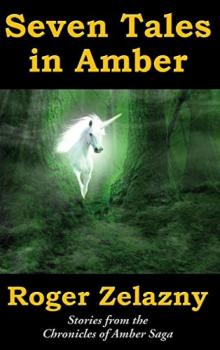 Seven Tales in Amber
Seven Tales in Amber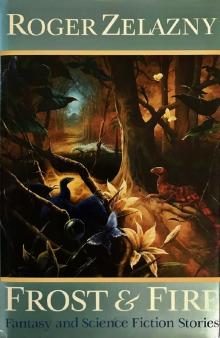 Frost and Fire
Frost and Fire Doorways in the Sand
Doorways in the Sand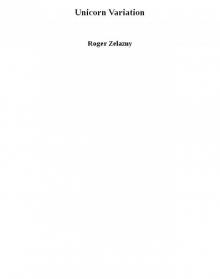 Unicorn Variation
Unicorn Variation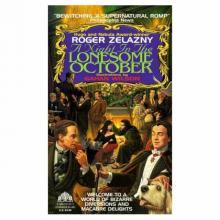 A Night in the Lonesome October
A Night in the Lonesome October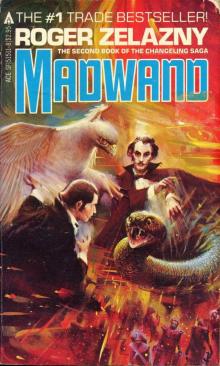 Madwand
Madwand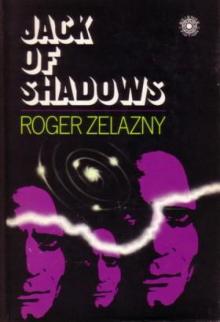 Jack Of Shadows
Jack Of Shadows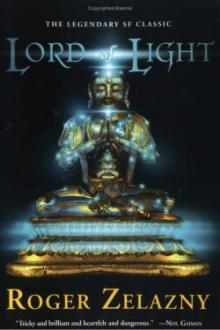 Lord of Light
Lord of Light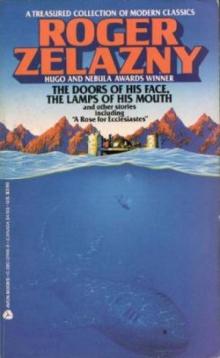 The Doors of His Face, The Lamps of His Mouth and Other Stories
The Doors of His Face, The Lamps of His Mouth and Other Stories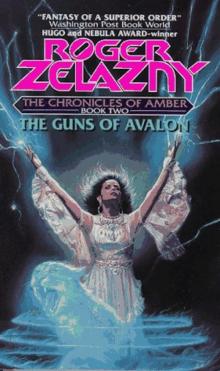 Guns Of Avalon tcoa-2
Guns Of Avalon tcoa-2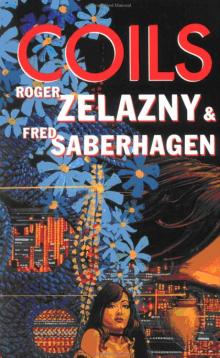 Coils
Coils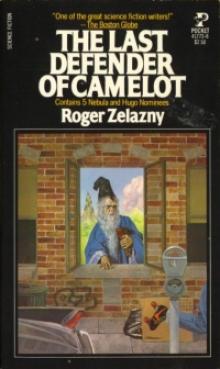 The Last Defender Of Camelot
The Last Defender Of Camelot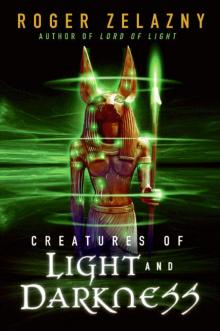 Creatures of Light and Darkness
Creatures of Light and Darkness This Immortal
This Immortal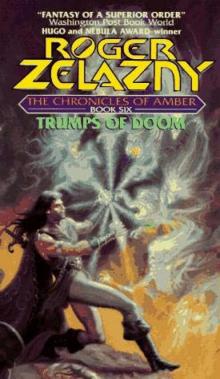 Trumps of doom tcoa-6
Trumps of doom tcoa-6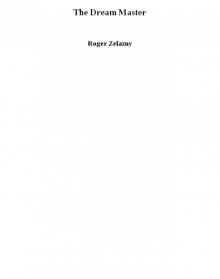 The Dream Master
The Dream Master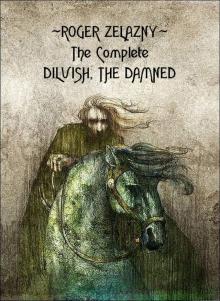 The Complete Dilvish, The Damned
The Complete Dilvish, The Damned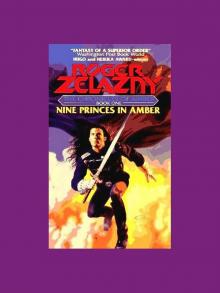 Nine Princes in Amber
Nine Princes in Amber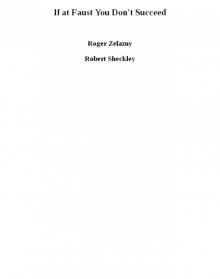 If at Faust You Don't Succeed
If at Faust You Don't Succeed Here there be dragons
Here there be dragons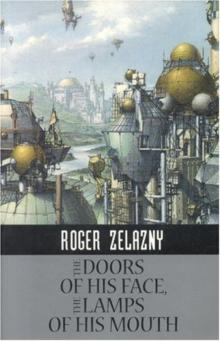 The Doors Of His Face, The Lamps Of His Mouth
The Doors Of His Face, The Lamps Of His Mouth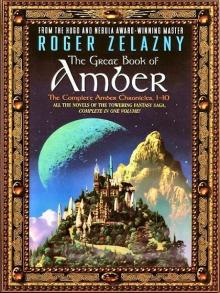 The Great Book of Amber - Chronicles 1-10
The Great Book of Amber - Chronicles 1-10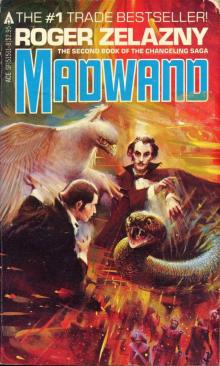 Madwand (Illustrated)
Madwand (Illustrated)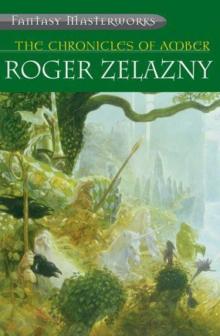 The Chronicles of Amber
The Chronicles of Amber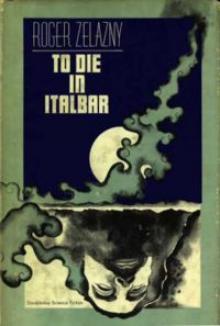 To Die In Italbar
To Die In Italbar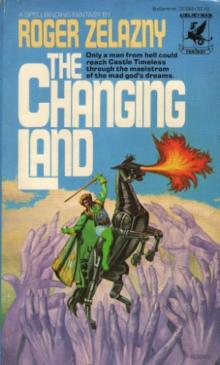 The Changing Land
The Changing Land The Furies
The Furies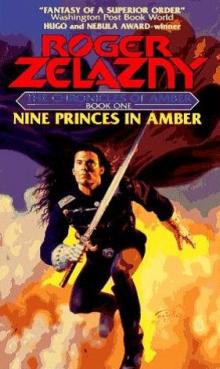 Nine Princes In Amber tcoa-1
Nine Princes In Amber tcoa-1 Last Of The Wild Ones
Last Of The Wild Ones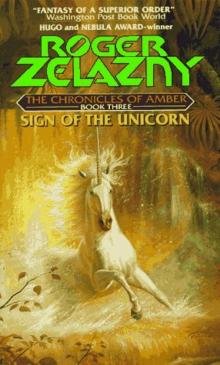 Sign of the Unicorn tcoa-3
Sign of the Unicorn tcoa-3 My Name is Legion
My Name is Legion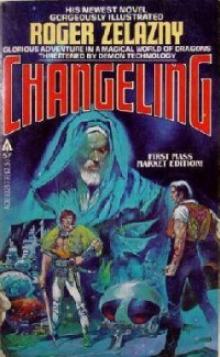 Wizard World 1: Changeling
Wizard World 1: Changeling Changeling
Changeling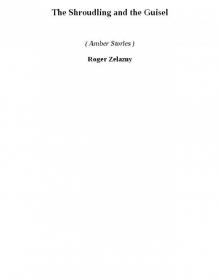 The Shroudling and the Guisel (amber stories)
The Shroudling and the Guisel (amber stories)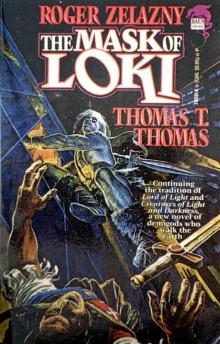 The Mask of Loki
The Mask of Loki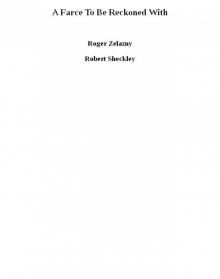 A Farce To Be Reckoned With
A Farce To Be Reckoned With Roadmarks
Roadmarks When Pussywillows Last in the Catyard Bloomed (rtf)
When Pussywillows Last in the Catyard Bloomed (rtf)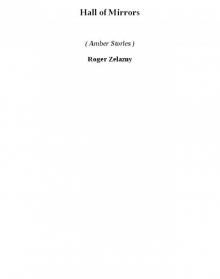 Hall of Mirrors (amber stories)
Hall of Mirrors (amber stories)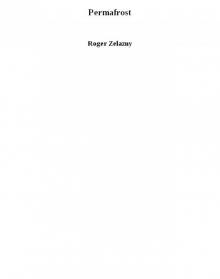 Permafrost
Permafrost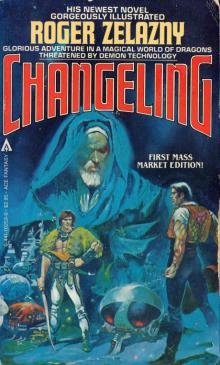 Changeling (Illustrated)
Changeling (Illustrated)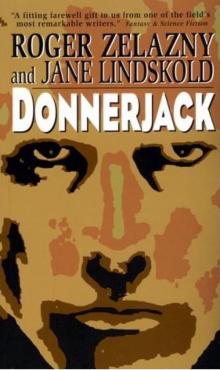 Donnerjack
Donnerjack Shadows & Reflections: A Roger Zelazny Tribute Anthology
Shadows & Reflections: A Roger Zelazny Tribute Anthology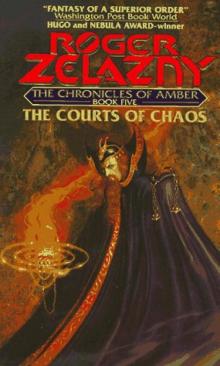 The Courts Of Chaos tcoa-5
The Courts Of Chaos tcoa-5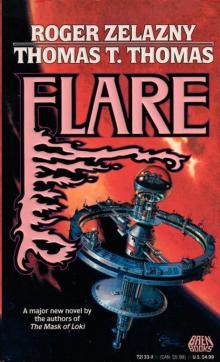 Flare
Flare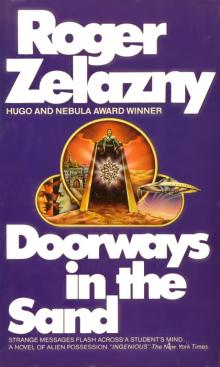 Doorsways in the Sand
Doorsways in the Sand The Great Book of Amber
The Great Book of Amber Home Is the Hangman
Home Is the Hangman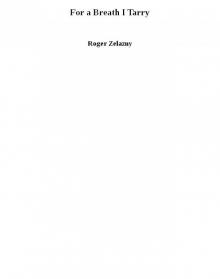 For a Breath I Tarry
For a Breath I Tarry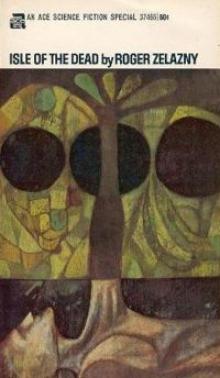 Isle Of The Dead
Isle Of The Dead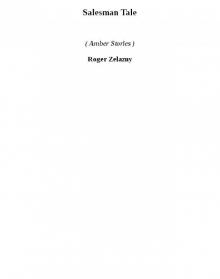 Salesman Tale (amber stories)
Salesman Tale (amber stories) Dismal Light
Dismal Light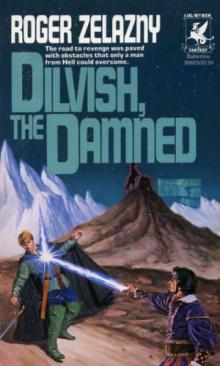 Dilvish, The Damned
Dilvish, The Damned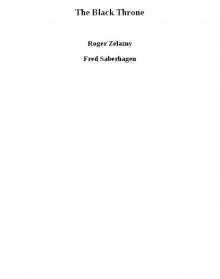 The Black Throne
The Black Throne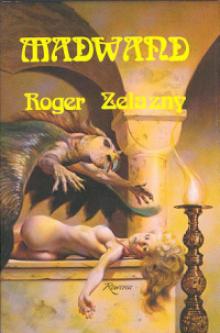 Wizard World 2: Madwand
Wizard World 2: Madwand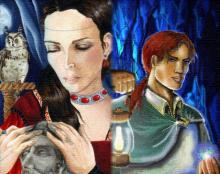 The Salesman's Tale
The Salesman's Tale